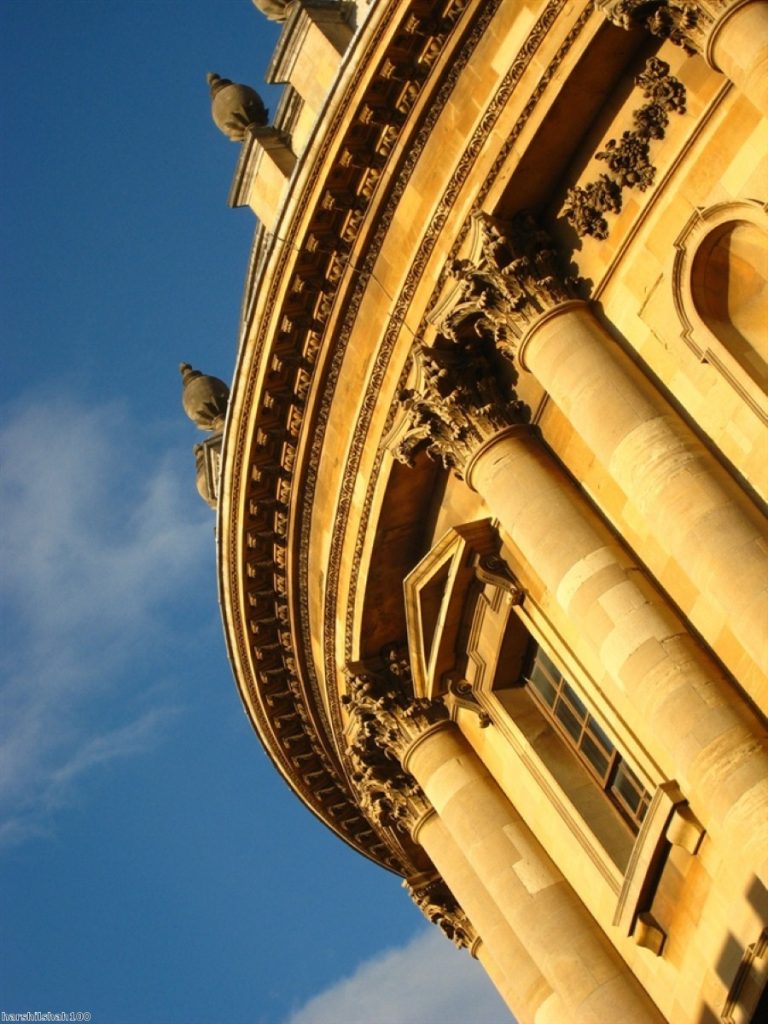Students are right to demand the Cecil Rhodes statue be pulled down
The current battle in the 'free speech on campus' war centres on Cecil Rhodes, the British colonialist and founder of Rhodesia whose statue looks down on students in Oxford's Oriel College.
On this issue, more than any before it, a line in the sand seems to have been drawn. Sure, the college has agreed to review the statue, but there is a sense of widespread and vocal opposition to students' demands. Academics have written an open letter demanding an end to the increasingly censorious climate on campus. Professor Louise Richardson, who was installed as the 272nd Oxford vice-chancellor yesterday, spent much of her address highlighting the need for debate and critical thought.
While previous 'free speech on campus' issues have been relatively esoteric affairs, the press has finally caught up and is following this one closely. Former BBC Trust chairman Lord Patten has waded in, warning that universities are becoming "a drab, bland, suburb of the soul where the diet is intellectual porridge". He added:
"Education is not indoctrination. Our history is not a blank page on which we can write our own version of what it should have been according to our contemporary views and prejudices."
These interventions are vital. For some time, academics have allowed this suffocating climate of speech crime to grow on campus. They give way and give way, hoping not to offend their students, or, worse, be subject to the village-stocks humiliation meted out to those who do not abide by the new rules of conduct.
It is never enough. Look at the treatment of Nicholas Christakis, husband of a professor at Yale who dared to suggest students should not be told by the college authorities what Halloween costumes they could wear. When he tried to debate students, they quickly resorted to screaming and abuse. "Be quiet," one student shouts at him. "It is not about creating an intellectual space."
There is a sense that we are at turning point in the intellectual development of the next generation of professionals and that confident intervention is required before they emerge, zombie-like and unable to tolerate criticism, from university.
But it is completely bizarre that people have chosen to take a stand for free speech on an issue which does not actually involve free speech.
The Cecil Rhodes statue does not have a voice. It is not talking. It cannot shut up any more than it already is. The petition calling for its removal does not demand that those who hold racist views or believe in colonialism should be censored.
It is, admittedly, full of the usual rhetorical devices of the student censorship movement, including the insistence that the university is a "home" rather than a place of learning and a systematic misuse of the word "violence". But the issue itself, whether the statue should be removed, is not a free speech issue. The only free speech issue which would arise is if those supporting "Rhodes Must Fall" are silenced from what is a perfectly valid debate.
Opponents say that removing the statue is like trying to whitewash the past. Some of those connected with Oxford did and thought terrible things, they say, but we cannot deny our historical connection with those who our modern sensibilities might find distasteful.
This argument is never very convincing. The sensibilities of those being discriminated against or massacred was always opposed to those who modern commentators see more sympathetically. That's the thing about saying we should judge historic figures by the standards of our time. The standards of the historic victims were always against them. We only see history this way because we see it through the eyes of the powerful.
But putting that argument to one side, this is not just a matter of history. Statues stand here, in the present. They symbolise who we want to celebrate, who we admire. It is not remotely odd or unacceptable for students to say: this is not someone we admire, this statue does not reflect us.
Did anyone say the Iraqis were 'rewriting history' when the statue of Saddam Hussein was toppled? Did anyone accuse the Hungarians of an attack on free speech when they pulled down the endless gloomy statues of Stalin and Lenin and Marx that littered their country? No. So why on earth would it suddenly become a problem now that we’re doing it to some mean old racist?
Ultimately ther debate on the statue is for students and their university. For those of us who want to protect free speech on campus, there is only one pertinent question: is this a free speech debate? And the answer is clearly no.
With all free speech issues, you ask: who loses and what is the consequence of that, for them specifically and free thought in general. In this case, no-one loses. No-one is being shut up. That's why it's not a free speech debate and those fighting for free speech on campus are wrong to treat it as one.
It is perfectly legitimate for the students of Oxford to demand that Rhodes must fall.














